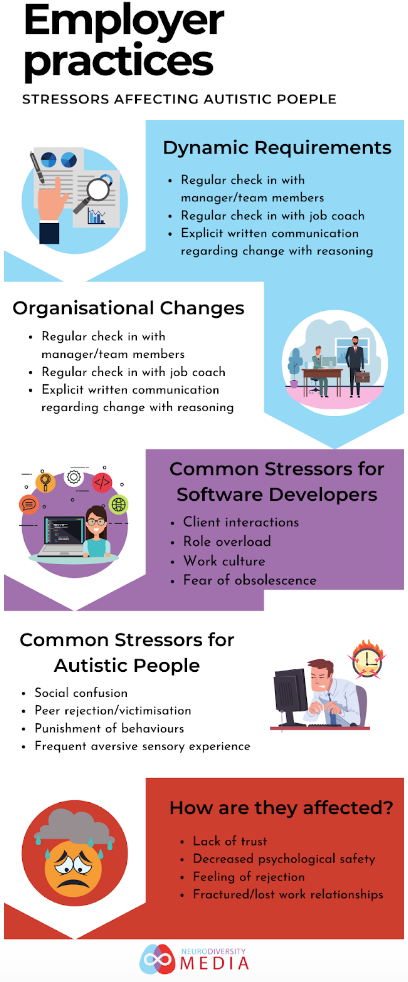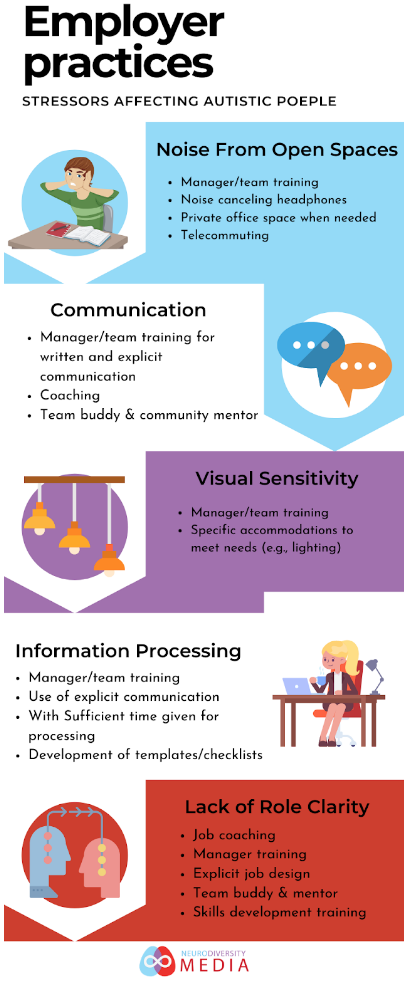Autistic Software Developers Experience Unique Stresses [Article]
![Autistic Software Developers Experience Unique Stresses [Article]](https://static1.s123-cdn-static-a.com/uploads/5695988/2000_61892dd758018.png)
Carly Godden | 04/07/2020
They are more likely to struggle with interpersonal skills compared with their neurotypical counterparts.
Autistic software developers are more susceptible to workplace-induced stress than their neurotypical colleagues, according to US researchers.

By reviewing existing studies, researchers from The University of Washington and consultancy The Good Org found that while autistic software developers often enjoy their work, they face specific challenges in the workforce.
They often find it stressful to deal with managers who struggle to understand how to make the most of their talents.
Typically, these individuals are exposed to stressors arising from the failure of managers to fully comprehend and capitalise upon the diversity of abilities among their autistic employees.
Other stress-inducing factors include dealing with social and behavioural misunderstandings between autistic software developers and their co-workers and supervisors are also identified by the researchers as prominent stress-inducing factors.
Software development is a competitive profession that attracts many autistic individuals. The researchers attribute these numbers to both the inclination of autistic people towards technology-based careers and targeted employment programs. IT companies, such as SAP and Microsoft, have developed autistic hiring programs to leverage the talents of autistic individuals.
The researchers compared past studies which looked at common pressures on software developers. These reviews indicate that professionals in this field have demanding and unpredictable schedules.
Software developers are expected to remain technically proficient and be across rapidly changing technologies, while being. Software developers are also usually required to be considerably client-focused. They must also be and able to apply soft skills such as stress tolerance, empathy and, teamwork. and co-operation.
A general study of occupational stress factors, which surveyed 856 software developers, was also considered by the researchers. Out of the ten who self-identified as neurodivergent, over half described themselves as possessing poor interpersonal skills, which they considered made their job more challenging.
Accordingly, while both autistic and neurotypical software developers are subject to these same conditions, the researchers concluded that “the challenges presented by desired social skills add a layer of complexity to an already challenging work environment for autistic software developers.”
The need for further research into how autistic software developers experience stress differently from neurotypical co-workers, was called for by the researchers.
Other tips include:
- Tailored stress mitigation strategies
- Organisation-wide sensitivity training
- Job coaching
- Adjusted lighting
- Direct style of communication to minimise stress to changes to work plans and routines or not picking up on nuances
- Checklists, templates and documenting expectations ahead of time
Applying this evidence-based approach will help assist IT employers to take equitable steps towards facilitating a more positive workplace experience for autistic software developers, the researchers conclude.

